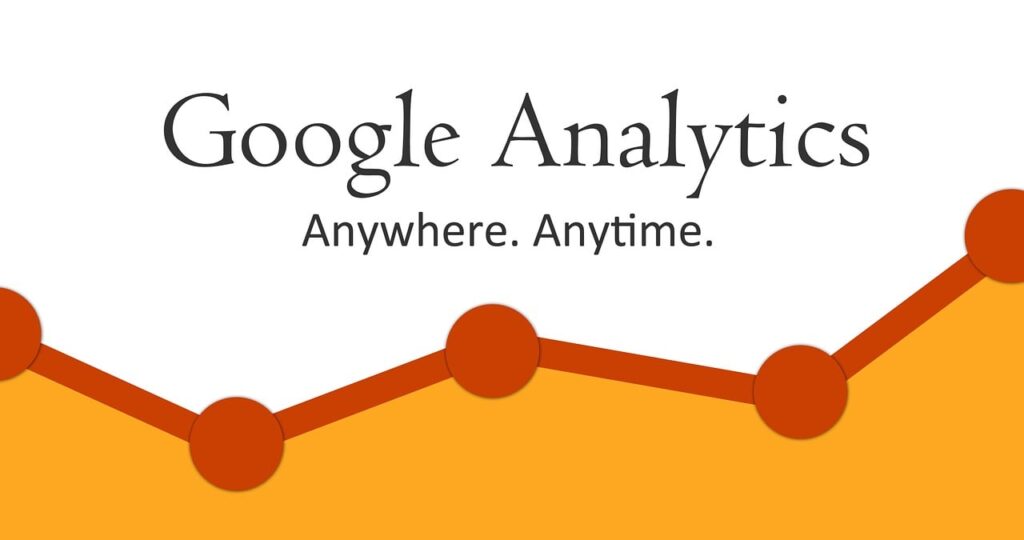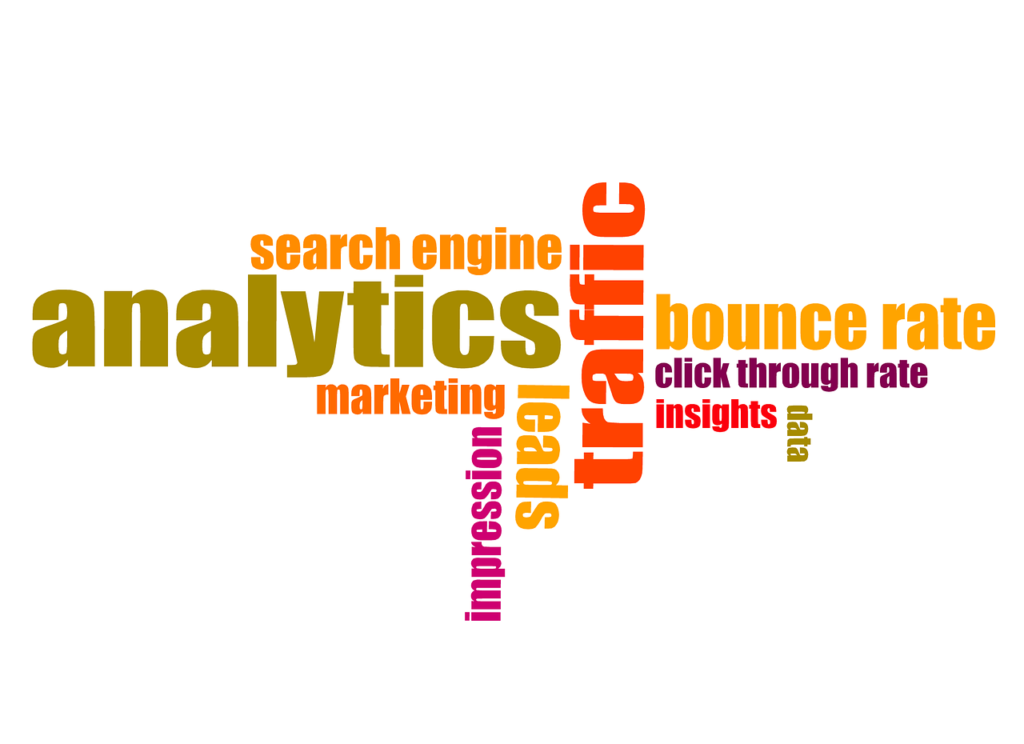Data Analytics:
Introduction
In today’s data-driven world, information has Data analytics, the process of examining, cleaning, transforming, and interpreting data to make informed decisions, has emerged as a critical skill set. But can you make money with data analytics In this article, we explore the potential for individuals to earn a lucrative income by harnessing the power of data analytics.
1. The Importance of Data Analytics
Before delving into the earning potential, it’s essential to understand the significance of data analytics. Businesses and institutions across various industries rely on data to optimize operations, improve customer experiences, and gain a competitive edge. This reliance on data has created a high demand for skilled data analysts and professionals who can extract meaningful insights from complex datasets.
2. Career Paths in Data Analytics
Data analytics offers a diverse range of career paths, catering to different interests and expertise levels. Some common career options include data analyst, data scientist, business analyst, machine learning engineer, and database administrator. Each of these roles focuses on specific aspects of data analysis and requires a unique skill set.
3. Earning Potential in Data Analytics
Earning potential in data analytics varies depending on several factors, including your level of experience, specialization, and geographical location. Generally, data analytics professionals can expect competitive salaries. For instance, data analysts can earn an annual median salary ranging from $60,000 to $90,000, while data scientists often command salaries well above the six-figure mark.

4. Steps to Start Earning with Data Analytics
If you’re interested in making money with data analytics, consider the following steps:
- Acquire the necessary skills: Begin by learning essential data analytics tools and techniques. Online courses, certifications, and self-study resources can help build your knowledge.
- Build a portfolio: Showcase your skills by working on personal or volunteer projects and create a portfolio that highlights your capabilities.
- Network and apply for jobs: Join data analytics communities, attend networking events, and apply for entry-level positions or internships to gain practical experience.
- Specialize: Identify areas within data analytics that align with your interests and strengths. Specialization can lead to higher earning potential.
5. Challenges and Considerations
While data analytics offers significant earning potential, it’s essential to be aware of the challenges and thoughts in the field. Data privacy and security concerns, the need to keep up with evolving technologies, and the competitive nature of the job market are some factors to keep in mind.
6. Success Stories
Explore real-world success stories of individuals who have carved successful careers in data analytics. Learn from their journeys and discover the various paths to financial success in the field.
1. Can I Work Online as a Data Analyst:
In this article, we explore the feasibility of working online as a data analyst, discussing the advantages, prerequisites, and steps to embark on this promising career path.
1. The Role of a Data Analyst
Before diving into the online realm, it is vital to apprehend the function of a records analyst. Data analysts are responsible for collecting, processing, or deciphering facts to assist businesses in making knowledgeable decisions. They play an essential function in extracting significant insights from datasets, making their work crucial in the latest data-driven world.
2. Advantages of Working Online as a Data Analyst
Working online as a data analyst offers several advantages.
- Flexibility: Remote work permits you to set your agenda and work from anywhere with an internet connection.
- Diverse Opportunities: The online job market for data analysts is vast, with opportunities in various industries and sectors.
- Cost Savings: Remote work eliminates commuting costs and can lead to significant savings.
- Work-Life Balance: You can gain higher work-life stability by working from the remedy of your home.
3. Steps to Start Working Online as a Data Analyst
To commence your experience as an online records analyst, think about these steps:
- Acquire Relevant Skills: Develop your capabilities in statistics analysis, statistical tools, and programming languages generally used in the field, such as Python and R.
- Build a Portfolio: Create a portfolio showcasing your statistics evaluation projects, information visualizations, and any certifications you have earned.
- Network: Join online communities and boards associated with records evaluation to connect with professionals, find out job opportunities, and remain up to date on enterprise trends.
- Apply for Remote Positions: Explore job search platforms, employer websites, and freelancing websites for far-off information analyst positions.
- Prepare for Interviews: Brush up on interview methods and be equipped to exhibit your competencies and ride to achievable employers.
4. Tools and Skills Required
To succeed as an online data analyst, you’ll need proficiency in:
- Data analysis software (e.g., Excel, Python, R)
- Statistical analysis and data visualization tools (e.g., Tableau, Power BI)
- Database management and querying (e.g., SQL)
- Communication and problem-solving skills
- Attention to detail and critical thinking
5. Finding Online Data Analyst Jobs
Discover various online job sources, including job search platforms, company websites, and freelancing websites like Upwork and Freelancer. Tailor your applications to highlight your remote work capabilities and your experience in data analysis.
6. Challenges and Considerations
Working online as a data analyst comes with its challenges,
such as potential isolation, the need for self-discipline, and managing time effectively. Additionally, records privacy and protection worries have to be addressed when managing touchy records remotely.
2. Which Data Analytics Course is Best:
In this article, we’ll explore the factors to consider when making this decision and provide insights into popular courses to help you make an informed choice.
1. The Importance of Choosing the Right Data Analytics Course
Choosing the right data analytics course is crucial for several reasons:
- Relevance: The path ought to align with your professional dreams and the particular capabilities you prefer to acquire.
- Quality: The quality of the course content, instructors, and learning materials directly impacts your learning experience.
- Certification: Many employers value certifications from reputable courses when hiring data analysts or scientists.
- Cost and Time Commitment: Consider your budget and the amount of time you can dedicate to the course.
2. Types of Data Analytics Courses
- University Degrees: Bachelor’s and master’s degrees in data science, analytics, or related fields.
- Online Courses: Self-paced or instructor-led courses on platforms like Coursera, edX, and Udacity.
- Bootcamps: Intensive, short-term programs focusing on practical skills.
- Certifications: Specialized certifications in data analytics or related areas.
3. Considerations for Choosing the Best Course
When evaluating data analytics courses, consider the following factors:
- Your Goals: Define your career goals and the specific skills you want to develop.
- Course Content: Review the syllabus to ensure it covers the topics you need.
- Instructors: Research the qualifications and experience of the instructors.
- Cost: Compare course fees and financial aid options.
- Reviews and Reputation: Read reviews from previous students and check the course’s reputation.
- Flexibility: Determine if the course structure aligns with your schedule and learning preferences.
4. Popular Data Analytics Courses
Several data analytics courses have gained popularity for their quality and relevance:
- Coursera’s Data Science Specialization: A series of courses from top universities covering data analysis, machine learning, and more.
- edX’s Data Science Micro Masters: A program offered by leading universities, focusing on data analysis and machine learning.
- Udacity’s Data Analyst Nanodegree: A hands-on program teaching data analysis using real-world datasets.
- Harvard’s Introduction to Data Science: A free online course introducing key data science concepts.
- General Assembly’s Data Science Immersive: An intensive boot camp covering data analysis and machine learning.
5. Online vs. In-Person Courses
Deciding between online and in-person courses depends on your preferences and circumstances. Online courses offer flexibility and accessibility, while in-person courses may provide a more immersive learning experience with direct access to instructors and networking opportunities.
6. Accreditation and Certification
When selecting a data analytics course, consider whether it offers accreditation or certification from reputable organizations. These credentials can enhance your job prospects and demonstrate your expertise to potential employers.
3. Can I Get a Job With Google Data Analytics Certification:
In this article, we’ll explore the importance of data analytics certification, the specifics of Google’s certification program, and the career prospects it can offer.

1. The Significance of Data Analytics Certification
Data analytics certification has gained prominence as a means of validating one’s expertise in the field. It demonstrates your commitment to professional development and signifies that you possess the necessary skills to excel as a data analyst. Many employers value certifications when hiring, as they provide a standardized measure of competence.
2. Google Data Analytics Certification
Google, a renowned tech giant, offers a Data Analytics Professional Certificate program through its online learning platform, Coursera. This program is designed to equip individuals with the skills required to perform data analysis, and data visualization, and draw insights from data.
3. What Does the Certification Cover
The Google Data Analytics Certification program consists of a series of courses covering essential topics in data analytics, including data collection, cleaning, analysis, and visualization. It provides hands-on experience with tools such as SQL, Tableau, and Google Sheets, allowing you to apply what you learn in real-world scenarios.
4. The Value of Google’s Brand
One significant advantage of obtaining a Google Data Analytics Certification is the association with Google’s brand. Google is globally recognized and respected in the tech industry, which can add credibility to your credentials and resume. Employers often view Google-certified professionals as having received training from a reputable source.
5. Job Opportunities with Google Data Analytics Certification
Earning a Google Data Analytics Certification can open doors to various job opportunities, including roles such as:
- Data Analyst
- Business Analyst
- Data Visualization Specialist
- Market Research Analyst
- Financial Analyst
- Business Intelligence Analyst
6. How to Leverage the Certification in Your Job Search
To maximize the benefits of your Google Data Analytics Certification during your job search:
- Highlight It on Your Resume: Mention your certification, including the specific skills and tools you’ve learned.
- Customize Your Applications: Tailor your job applications to emphasize how your certification aligns with the job requirements.
- Build a Strong Portfolio: Create a portfolio showcasing your data analysis projects, visualizations, and problem-solving abilities.
- Network: Join data analytics communities, attend webinars, and connect with professionals to learn about job openings and industry insights.
7. Real-World Success Stories
Explore stories of individuals who have secured jobs or advanced their careers with a Google Data Analytics Certification. These success stories demonstrate the practical value of this certification in the job market.
4. Is Data Analysis a High-Paying Job:
In this article, we’ll delve into the world of data analysis, exploring the factors that influence salaries and opportunities for career growth.
1. The Demand for Data Analysts
The demand for data analysts is consistently on the rise. Organizations across various industries are collecting vast amounts of data and require professionals who can extract actionable insights from it. This high demand for skilled data analysts has contributed to competitive salaries in the field.
2. Factors Influencing Data Analyst Salaries
Several factors influence data analyst salaries:
- Experience: Experienced data analysts often command higher salaries due to their track record of delivering valuable insights.
- Industry: Salaries can differ extensively depending on the industry. For example, records analysts in finance and healthcare tend to earn greater salaries than those in non-profit organizations.
- Location: Geographic place performs a fundamental role. Data analysts in tech hubs like Silicon Valley generally earn greater salaries in contrast to those in much less highly-priced regions.
- Skills: Proficiency in specialized skills like machine learning, data visualization, and programming languages can lead to higher-paying roles.
- Education: A higher level of education, such as a master’s degree in data science or analytics, can result in increased earning potential.
4. High-Paying Sectors for Data Analysts
Certain sectors consistently offer high-paying opportunities for data analysts, including:
- Finance: Financial institutions rely on data analysis for risk assessment, fraud detection, and investment strategies.
- Healthcare: Healthcare organizations use data analysis for patient care, treatment efficacy, and resource allocation.
- Technology: Tech companies leverage data analytics for product development, user experience enhancement, and market analysis.
- Consulting: Data analysts in consulting firms work on projects across various industries and often receive competitive compensation.
5. Geographic Variations in Data Analyst Salaries
Salaries for data analysts vary significantly by location. Cities with a high cost of living and a strong tech presence tend to offer higher salaries. However, remote work options have expanded opportunities for data analysts to earn competitive incomes regardless of their physical location.
6. Career Growth and Earning Potential
Data analysts have promising career growth prospects. As you gain experience and develop specialized skills, you can advance to roles such as data scientist, senior data analyst, or data analytics manager, which often come with higher salaries.
7. The Importance of Skills and Education
Data analysts with a robust ability set are greater likely to invulnerable high-paying positions. Skills such as data mining, statistics visualization, statistical analysis, and talent in equipment like Python and R are distinctly valued with the aid of employers. Additionally, pursuing similar education, such as certifications or a master’s degree, can open doorways to higher-paying roles and accelerated income potential.
8. Tips for Maximizing Your Data Analyst Salary
To maximize your records analyst salary:
- Continuously improve your competencies and remain up to date with enterprise trends.
- Seek possibilities for specialization in high-demand areas.
- Consider pursuing superior tiers or certifications.
- Negotiate your profits when beginning a new job or throughout annual reviews.
- Leverage your community to discover higher-paying job opportunities.
5. Is Data Analyst a Future Job:
In this article, we’ll explore the significance of data analysis, the expanding role of data analysts, and the factors shaping the future of this profession.

2. The Pervasiveness of Data
Data has become an omnipresent force in our lives. Whether it’s businesses collecting customer information, healthcare organizations managing patient records, or governments tracking demographics, data is at the heart of countless operations. The sheer volume and complexity of data generated daily have given rise to the need for skilled professionals to make sense of it.
3. The Growing Demand for Data Analysts
The demand for data analysts has been steadily increasing. Organizations recognize the value of data-driven decision-making in improving efficiency, understanding customer behavior, and gaining a competitive edge. As a result, they seek individuals with the expertise to analyze data and extract actionable insights.
4. Evolving Role of Data Analysts
Data analysts are no longer limited to number-crunching roles. Their responsibilities have evolved to encompass:
- Strategic Decision Support: Data analysts contribute to strategic planning by providing insights and recommendations.
- Data Visualization: They create compelling data visualizations that help convey complex information to non-technical stakeholders.
- Predictive Analytics: Data analysts use statistical models and machine learning to predict future trends and outcomes.
- Data Storytelling: Effective communication of data findings is becoming an essential skill for data analysts.
5. Technology Advancements and Data Analytics
Technological advancements have empowered data analysts with more sophisticated tools and resources. The advent of big data technologies, cloud computing, and advanced analytics platforms has expanded the capabilities of data analysis. Data analysts are now able to process and analyze larger datasets faster and more efficiently.
6. Data Privacy and Ethical Considerations
The future of records evaluation additionally entails moral and privacy considerations. With growing worries about data protection and privacy breaches, data analysts are predicted to adhere to stringent moral requirements and regulations. This thing of the job is in all likelihood to turn out to be an even greater imperative in the future.
7. The Future Outlook for Data Analysts
The future looks promising for data analysts. With the continued growth of data in various industries, the demand for skilled professionals is expected to remain strong. Additionally, emerging fields like artificial intelligence and machine learning are creating new opportunities for data analysts to apply their expertise.
8. Preparing for a Career in Data Analysis
To position yourself for a future in data analysis:
- Acquire a strong foundation in mathematics and statistics.
- Learn data analysis tools and programming languages such as Python and R.
- Develop data visualization skills.
- Stay updated with industry trends and advancements.
- Consider pursuing relevant certifications or degrees.
6. What Is The Next Step After Data Analyst:
This article explores various paths and options for advancing beyond the role of a data analyst.
2. The Role of a Data Analyst
Data analysts are accountable for collecting, cleaning, analyzing, and decoding information to supply precious insights for decision-making. While it is a fundamental role, many facts analysts aspire to take their careers to the next level.
3. Advancing in Your Data Analytics Career
Advancing in your data analytics career involves several considerations:
- Skill Enhancement: Continue improving your skills in data analysis tools, programming languages, and data visualization.
- Networking: Build a professional network within the data analytics community to explore opportunities and learn from others.
- Certifications: Consider obtaining advanced certifications or degrees to demonstrate your expertise.
4. Potential Career Paths
After establishing yourself as a data analyst, you can explore various career paths:
Data Scientist: Data scientists delve deeper into data modeling, machine learning, and predictive analytics.
Data Engineer: Data engineers focus on data infrastructure, architecture, and ETL (Extract, Transform, Load) processes.
Business Intelligence Analyst: BI analysts create reports and dashboards to facilitate data-driven decision-making.
Data Architect: Data architects format records structures and constructions to ensure environment-friendly statistics storage and retrieval.
5. Specialization in Data Analysis
Specialization lets you center of attention on a precise component of facts analysis, such as:
- Quantitative Analyst (Quant): Quants work with financial data to develop trading strategies and risk models.
- Healthcare Data Analyst: Healthcare analysts focus on data within the medical and healthcare industry.
- Marketing Analyst: Marketing analysts analyze consumer behavior, market trends, and campaign effectiveness.
- Sports Analyst: Sports analysts use data to evaluate athlete performance and team strategies.
6. Pursuing a Data Science Career
Data scientists are accountable for designing complicated information models, conducting superior statistical analysis, and creating desktop mastering algorithms. To transition into this role, decorate your abilities in statistical modeling, programming, and computer learning. Pursuing a master’s diploma in records science or an associated discipline can additionally be beneficial.
7. Moving into Data Engineering
Data engineers design, build, and preserve statistics pipelines, databases, and information warehouses. To shift into this career, the focal point on database administration systems, large statistics applied sciences like Hadoop and Spark, and cloud computing systems such as AWS and Azure. Familiarize yourself with information integration equipment and acquire a trip in information architecture.
8. Transitioning to Management Roles
For those interested in management roles, consider becoming a data analytics manager or director. These positions involve overseeing data teams, setting strategic data goals, and aligning data initiatives with business objectives. Developing leadership skills, project management abilities, and business acumen is crucial for success in these roles.
7. What are Benefits of Working as a Data Analyst:
In this article, we’ll explore the advantages of pursuing a career in data analysis.
- In-Demand Profession: Data analysis has become an essential function in the modern business landscape. Organizations rely on data-driven insights to make informed decisions, drive growth, and gain a competitive edge. As a result, the demand for skilled data analysts continues to rise steadily.
- Competitive Salaries: One of the most compelling benefits of working as a data analyst is the potential for competitive salaries. Experienced data analysts often command higher pay due to their expertise in handling complex datasets and providing valuable insights. Salaries can vary by industry, location, and level of experience.
- Diverse Industry Opportunities: Data analysts have the flexibility to work in a vast variety of industries, which include finance, healthcare, e-commerce, marketing, and technology. This range permits gurus to discover a range of sectors and locate possibilities that align with their hobbies and passions.
- Problem-Solving and Critical Thinking: Data analysts are problem-solvers by nature. They tackle complex questions and challenges by gathering, cleaning, and analyzing data. This constant problem-solving fosters critical thinking skills that are highly transferable to other areas of life and work.
- Varied and Engaging Work: Data analysts rarely face monotony in their work. Each project is unique, requiring different data sources, analysis techniques, and insights. This variety keeps the job engaging and intellectually stimulating.
- Career Advancement and Growth: Data analysis offers a clear career path with opportunities for advancement. Experienced data analysts can progress into roles such as senior data analyst, data scientist, data engineer, or even managerial positions. Career growth often comes with increased responsibilities and higher earning potential.
- Valuable Skills Development: Working as a data analyst provides the opportunity to develop a valuable skill set. This includes proficiency in data analysis tools (e.g., Python, R, SQL), statistical analysis, data visualization, and storytelling. These skills not only advance your career but also enhance your problem-solving abilities in various contexts.
Conclusion:
In conclusion, making money with data analytics is not only possible but also highly rewarding. The growing demand for data-driven insights presents ample opportunities for individuals to enter the field and earn competitive salaries. By acquiring the necessary skills, specializing in specific areas, and staying up-to-date with industry trends, you can embark on a fulfilling career or side hustle in data analytics. So, whether you’re just starting or looking to level up your data analytics game, the potential for financial success is within your reach in this exciting and dynamic field.






